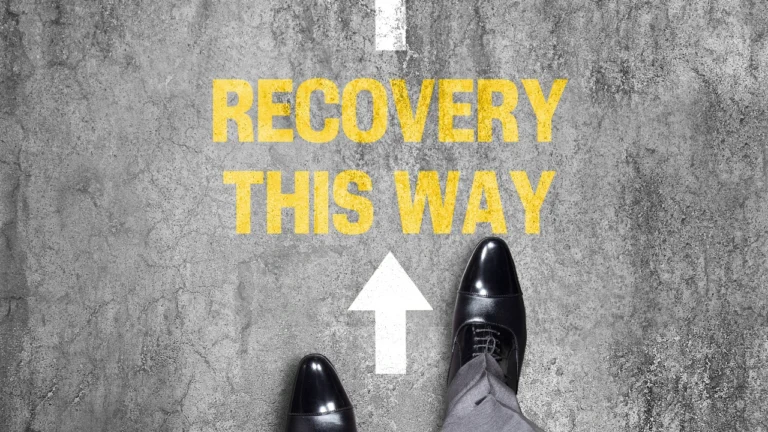Have you recently received calls from (312-380-4033) Harris & Harris, Ltd. about an unpaid debt? You’re not alone. Many consumers are contacted by this collection agency each year regarding medical bills, utility balances, government fines, and other accounts. These calls can be stressful, especially if you’re unsure whether the debt is legitimate. The FDCPA has some rules which state when debt collectors can call and when they need to stop. Consumers may get statutory damages of 1000$ through FDCPA law and 500$ per call through TCPA law.
Who Is Harris & Harris, Ltd.?
Harris & Harris, Ltd. is a third-party debt collection agency based in Chicago, Illinois. They collect debts on behalf of Healthcare providers, medical bills, utility companies, government agencies and educational institutions Their job is to recover unpaid accounts for their clients. However, they must follow federal and state laws when contacting you.
Business Address: 111 W Jackson Blvd, Suite 400
Chicago, IL 60604-4135
Why Is Harris & Harris Calling You?
They may be contacting you because:
You have an unpaid medical bill
A utility balance is overdue
You owe government-related fees
A student-related account is delinquent
Your account was transferred from the original creditor
Before taking any action, always verify the debt first.
Harris & Harris Contact Information
Here are commonly reported phone numbers linked to Harris & Harris:
- (866) 781-4538
- (312) 604-7187
- (312) 521-5344
- (312) 893-4857
- (312) 380-4059
- (312) 423-7548
- (312) 893-4801
- (312) 251-2300
- (800) 362-0097
- 312-380-4033
What Constitute Harris & Harris Phone Harassment
Harris & Harris Phone harassment can take many forms, and it’s essential to recognize the signs to take action. Some common signs of phone harassment include:
- Repeated Unwanted Calls or Messages: If you’re receiving numerous calls or messages from an unknown or blocked number, it’s a clear sign of harassment. These calls can be particularly distressing if they occur frequently and without any legitimate reason.
- Threatening or Abusive Language: Harassers often use threatening or abusive language to intimidate their victims. If you receive calls or messages that make you feel scared or uncomfortable, it’s important to take them seriously.
- Odd Hours: Receiving calls or messages late at night or early in the morning can be a tactic used by harassers to disrupt your peace and invade your personal time.
- Intimidation Tactics: Repeated hang-ups, silent calls, or messages designed to intimidate or harass are common signs of Harris & Harris debt collection harassment. These tactics are meant to create a sense of fear and anxiety.
- Deceptive Practices: Harris & Harris phone harassment number caller does spoofed calls, where the number or identity is disguised, and phishing scams, where the caller tries to trick you into revealing personal information, are also forms of phone harassment.
How to Deal with Harris & Harris Calls?
Follow these steps to protect yourself:
1. Document All Communication
Write down:
Date and time
Phone number
Caller name
What was said
Save voicemails and letters.
2. Request Validation in Writing
Send a written request asking for proof of debt.
3. Do Not Admit Anything
Avoid saying:
“I owe this”
“I’ll pay”
“That’s my account”
These statements can hurt your case.
4. Consider Legal Support
If harassment continues, legal help can stop calls and enforce your rights.
What Happens If You Ignore Harris & Harris?
Ignoring collectors can lead to serious consequences.
Possible Risks
| Risk | What It Means |
|---|---|
| Credit Damage | Negative reports |
| Lawsuit | Court action |
| Judgment | Legal ruling against you |
| Wage Garnishment | Paycheck deductions |
| Bank Levy | Account seizure |
| Property Lien | Asset restriction |
Addressing the issue early is always safer.
Can Harris & Harris Sue You?
Yes. If the debt is valid and within the statute of limitations, they may file a lawsuit.
If they win, they may seek:
Wage garnishment
Bank account levies
Property liens
Never ignore court papers and respond promptly.
Harris & Harris Lawsuits
The following is a sample list of complaints filed against Harris & Harris in the past year and can be found on Pacer.gov.
- 1:04-cv-00744-SEB-VSS Steward v.
- 2:14-cv-04138-JD Bruce v.
- 1:1-cv-01065-SEB-DKL Jimmy v.
- 2:15-cv-00218-ESW Mickelson v.
- 1:05-cv-06489 Falzone v.
Conclusion
Harris & Harris Phone harassment is a serious issue that can have significant impacts on mental health and well-being. By recognizing the signs of phone harassment, prioritizing mental health, and taking steps to report and prevent harassment, you can protect yourself and your loved ones. Remember, you have the right to feel safe and respected, and there are resources available to help you.
Get CONSUMER RIGHTS LAW FIRM PLLC to Help You!
Consumer Rights Law Firm, PLLC is a law firm that specializes in helping clients who are facing harassment from debt collectors in any form, including telephone communication. Contact a legal professional to stop Beacon Recovery Group debt collection harassment. Our office has been assisting consumers since 2010. We have an A+ rating with the Better Business Bureau.
If you are interested in learning more about how to safeguard yourself and prevent even more Beacon Recovery Group debt collection harassment, call us at (877)700-5790 for immediate assistance or visit our website.
FAQs
What is Harris & Harris, Ltd?
Harris & Harris is a third-party debt collector located in Chicago, Illinois. They have been a party to over 260 federal cases based on their issuance of credit and collection of debts incurred on their credit cards. Furthermore, a recent Federal Court cases alleges that Harris & Harris used illegal and harassing communication tactics to attempt to coerce a payment from the harassed consumer.
Is Harris & Harris a Federal Government Scam?
According to the Better Business Bureau website, Harris & Harris has been in business for 51 years. There have been 95 complaints filed against H&H with the BBB. Read more about it here: Harris & Harris Better Business Bureau
How do I know if a collection notice is real?
Check that it includes your name, account details, the creditor’s name, and validation rights. Call the original creditor to confirm the placement before paying.
What happens if I ignore debt collectors?
Ignoring does not erase the debt. You may get continued calls/letters, credit damage, and in some cases a lawsuit. Respond and request validation instead.
Who does Harris and Harris collect for?
Harris and Harris collects for medical providers, utilities, government agencies, and commercial creditors.
How do I contact Harris and Harris Ltd?
Use the phone number on your notice, mail their listed address, or visit their official website’s contact page for current options.
How to remove Harris and Harris from credit report?
Ask for debt validation, dispute any errors with the credit bureaus, or negotiate a written pay-for-delete agreement. Keep copies of all correspondence.
How do I contact Harris and Harris?
Call their customer service number shown on your letter or check their official website for up-to-date contact details and online portals.
Can I dispute a charge from a debt collector?
Yes. Send a written dispute within 30 days of the first notice. The collector must verify the debt before further collection.
Do Harris and Harris send text messages?
Yes. They may contact by text, but you can opt out and request written communication only.








